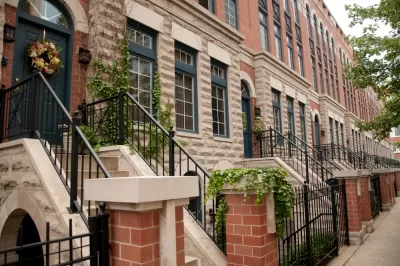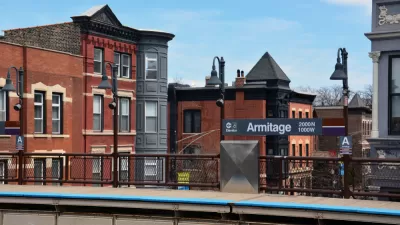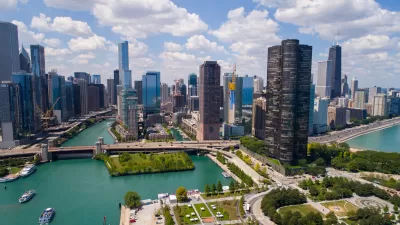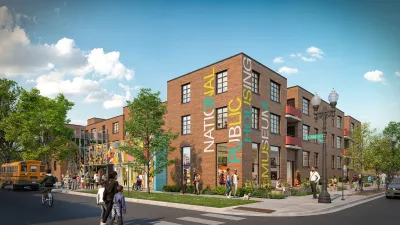A demolition fee designed to preserve affordable housing in older buildings has had some impact on the city’s housing supply.

Writing for Bloomberg CityLab, Mackenzie Hawkins describes an innovative tool wielded by anti-gentrification activists in Chicago’s Logan Square neighborhood: “a pilot ordinance that charges developers a fee of at least $15,000 for tearing down existing buildings.”
The ordinance is part of a larger group of policy recommendations being pushed by community organizers aimed at preserving affordable housing, much of which is found in Chicago’s iconic “two-flat” homes, a classic example of affordable ‘missing middle housing.’ According to Hawkins, “The loss of those units is a key displacement indicator,” making their preservation more urgent.
The demolition fee is now one of two long-term measures enacted by Chicago aldermen to preserve affordable housing. The other is “a permanent anti-deconversion ordinance” that requires developers to maintain density and apply for a permit to build single-family homes on blocks with two-flats.
The policies have yielded some positive results. “In the year after the anti-deconversion ordinance went into effect, followed two months later by the fee, the city found no deconversions in permit applications in the covered areas, compared to a reduced rate in other parts of the city. And there was a substantial drop in residential demolitions: almost 90% in The 606 area, and 40% in Pilsen, slightly outpacing slowdowns in other areas.”
The article outlines other challenges to preserving affordable two-flats, including the high cost of repairs that drive many property owners to sell and developers to demolish old buildings. Meanwhile, city programs to assist with repairs are unable to meet demand. Hawkins notes that the city is also encouraging ADU construction as another avenue to building more housing units, but much of ADU development is concentrated in the city’s wealthier neighborhoods.
FULL STORY: Chicago Taps Brakes on Gentrification With a Tax on Teardowns

Maui's Vacation Rental Debate Turns Ugly
Verbal attacks, misinformation campaigns and fistfights plague a high-stakes debate to convert thousands of vacation rentals into long-term housing.

Planetizen Federal Action Tracker
A weekly monitor of how Trump’s orders and actions are impacting planners and planning in America.

In Urban Planning, AI Prompting Could be the New Design Thinking
Creativity has long been key to great urban design. What if we see AI as our new creative partner?

King County Supportive Housing Program Offers Hope for Unhoused Residents
The county is taking a ‘Housing First’ approach that prioritizes getting people into housing, then offering wraparound supportive services.

Researchers Use AI to Get Clearer Picture of US Housing
Analysts are using artificial intelligence to supercharge their research by allowing them to comb through data faster. Though these AI tools can be error prone, they save time and housing researchers are optimistic about the future.

Making Shared Micromobility More Inclusive
Cities and shared mobility system operators can do more to include people with disabilities in planning and operations, per a new report.
Urban Design for Planners 1: Software Tools
This six-course series explores essential urban design concepts using open source software and equips planners with the tools they need to participate fully in the urban design process.
Planning for Universal Design
Learn the tools for implementing Universal Design in planning regulations.
planning NEXT
Appalachian Highlands Housing Partners
Mpact (founded as Rail~Volution)
City of Camden Redevelopment Agency
City of Astoria
City of Portland
City of Laramie





























